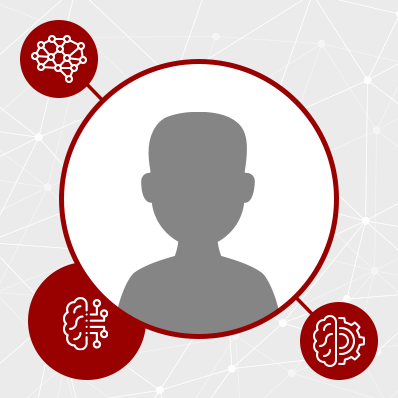Hirsch, Judith A.
Gabilan Distinguished Professorship in Science and Engineering and Professor of Biological Sciences
Our laboratory studies the thalamus, the interface between neocortex and the sensory periphery. Thalamus was once regarded as a simple gatekeeper, passively relaying information during waking and shielding neocortex from disturbance during sleep, but this is an impoverished view. We explore how thalamus, itself, contributes to sensory integration. In particular, we study the structure of neural circuits in the visual part of thalamus, how these operate during vision and how they extract and recode information from the eye. Our work shows how thalamus might contribute to visual processing by, for example, sharpening the visual image and increasing the efficiency of the neural code. Because circuits in different parts of thalamus are similar, our work pertains to thalamic function in general.
Holschneider, Daniel P.
Professor of Psychiatry & the Behavioral Sciences
Our laboratory focuses on brain imaging in awake, behaving rodents. We use classic methods like autoradiography and positron emission tomography, along with histologic approaches and 3D brain reconstruction. We have been amongst the first to adapt analytic methods that are part of the human functional neuroimaging toolbox (statistical parametric mapping, functional connectivity, network analysis) to autoradiographic and histologic whole brain data sets. This enables voxel-based exploration of cerebral function in models of dopaminergic deafferentation, Huntington’s Disease, brain injury, fear, stress, hyperalgesia, gut microflora alterations, and chemogenetic knockdown. Our expertise includes functional brain mapping, animal behavior, physiologic monitoring (EEG, EMG, EKG, cardiac output), and histochemistry.
Irimia, Andrei
Andrei Irimia, PhD, is a biogerontologist and computational neurobiologist studying the effects of genetic, epigenetic, and environmental factors on brain aging. His laboratory uses interpretable deep learning, genomics, and brain imaging to identify and characterize novel risk factors for Alzheimer’s disease and related dementias (ADRD). He also studies accelerated aging, neurovascular calcification, and brain injury as risk factors for ADRD.
Kamitakahara, Anna
Assistant Professor of Research
Research in the Kamitakahara Laboratory investigates how genes and the environment shape the development and mature function of the neural circuits controlling feeding behavior. Specific topics examined include: 1) the impact of perinatal nutrition on gut-brain signaling of satiation and reward-based feeding behaviors, and 2) the genetic and biological contributions to inter-individual differences in response to GLP-1 receptor agonist treatment. Mechanistic understanding of neural activity and feeding behavior is probed using advanced techniques such as bulk and single cell RNA sequencing, highly multiplexed in situ hybridization, and metabolic cage phenotyping. Through delineation of the genes and dietary factors that shape feeding behavior, research in the Kamitakahara lab aims to provide insight into the biological mechanisms underlying overconsumption and cardiometabolic disease.
Kanoski, Scott
Professor of Biological Sciences
The prevalence of obesity has exploded over the past 40 years. The biological systems that underlie the excessive eating behavior contributing to obesity onset remain poorly understood. Our research goal is to discover the neural systems and psychological processes that control energy balance, with a particular focus on understanding the neurobiological substrates that regulate obesity-promoting behaviors such as food impulsivity and environmental cue-induced feeding. Another primary focus of our lab is to study how the brain is negatively impacted by dietary and metabolic factors. Consumption of Western diets (high in saturated fatty acids and sugars) not only contributes to obesity development, but also produces deficits in learning and memory capabilities and can even increase the risk for developing dementia. We are currently examining the specific causal dietary factors, critical developmental periods, and neurobiological mechanisms underlying diet-induced cognitive decline. Ongoing research identifies the gut microbiome as a critical link between unhealthy junk food diets and neurocognition.
Kaplan, Jonas
Associate Professor of Psychology
I study self, consciousness, and meaning-making in all of its forms, with a focus on understanding the neural systems that integrate information to form high level models of the world and of the self. This includes a focus on narrative cognition, and naturalistic fMRI methods that allow for the analysis of the real-time, ongoing neural dynamics that support our understanding of the people, events, and stories that make up our worlds.








